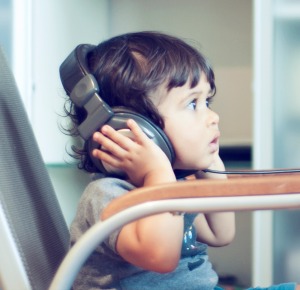Over the last few years, there has been a growing trend of parents who punish their kids online after they have misbehaved online. Sometimes these punishments have been fairly lighthearted, like the parents who grounded their child from Facebook and posted silly pictures of themselves on her account. Others were more costly, like the mom who posted a photo of her daughter holding a sign confessing to being a cyberbully, then donating money to an anti-bullying charity, or the dad who took a shotgun to his daughter’s laptop.
Reactions to these punishments have been mixed. Some have lauded giving the kids a “taste of their own medicine.” Others have expressed concerns about their emotional well-being. Either way, the parents’ goals were always clear: they wanted to teach their children about behaving appropriately online.
Brave New World
Any involved parent wants to impart certain core values to their child. These values might include courtesy and respect, hard work, education, or faith. Similarly, consciously or unconsciously, parents pick and choose from the values their own parents passed on to them, and decide whether or not to model them in the same way.
The Internet, like all technological advances before it, has thrown a wrench in the works. Few parents grew up themselves with access to online communication. Not even teen moms grew up with such ubiquitous online capabilities. And so, many parents don’t think to translate their offline values to online choices, or they don’t know how, or are themselves too distracted by their smartphones to notice that their kids need help.
Many kids, then, are left alone to deal with online problems with little or no guidance. They think of cyberbullying as a popularity issue, not a question of kindness. They think of filesharing as convenience, not theft. And porn is just another way to experience sexuality, not a health and justice issue.
Obviously, kids need their parents’ help and guidance. The good news is, conversations and modeling for online behavior don’t have to be much different than conversations and modeling for offline behavior, but these issues do need to be addressed. So where should parents start?
1. Remind yourself of what values are important, and how they play out online.
If you’re a parent, you probably have a good idea of the kind of person you want your child to be. Take a moment to list out some of these traits. Do you want your child to be:
- Godly?
- Kind?
- Helpful?
- Courageous?
- Hard-working?
- Honest?
- Pure?
Now think about how these values may play out online. What does kindness mean on a social network? What temptations could they face to threaten your kids’ purity? Do the video games they play promote the values you want them to develop? What about what they share on social networks? Or do they spend too much time online overall?
Sexual purity online is one of the most important values to address, but it’s also one of the most difficult. There’s no doubt that “the birds and the bees” is one of the most awkward conversations of a parent’s life, and many Christian parents in particular may be too embarrassed to cover it in as much depth as they should. But sexual temptations, especially porn, are almost inescapable online. Have you prepared yourself to talk about not just intercourse, but sexualized media as a whole? Do you know how to explain to your kids the scriptural commands against lust, as well as the physical ramifications that support these commands?
2. Find technological help for technological problems.
This should go without saying, but if you as a parent are concerned about your kids’ behavior online (and you should be), then you should find a tool that will help them–and you–online. Concerned that they can access porn? Block them with a filter.
More importantly, get Internet use reports so you can see what they do online. If you already use Covenant Eyes for yourself, this is easy. Just give each person in your family a unique username so you can monitor and filter them separately.
3. Show and tell why online integrity matters.
It’s not enough to use a “set it and forget it” option, such as a filter. Parents, if you really want your kids to pick up your values, you need to talk to them about what they have actually done online. When you notice that they have a favorite website, you need to ask why that one is their favorite. When they stumble across something questionable, whether it’s a slightly raunchy YouTube video or outright porn, you need to explain to them why you don’t want them watching those videos or visiting those sites. Not sure how to do that? Download this one-page guide for some conversation starters.
It’s also important to model an accountable lifestyle to your kids. Parents, use Internet Accountability for yourselves, and make sure your kids are aware of it. As your kids get older, you may even want to consider letting them hold you accountable by sending them your Accountability Reports.
This modeling is important even if you don’t struggle. One mom put it best: “[My husband and I] personally do not feel like the two of us need it. However, when our kids or other people come into our home—and we have many ‘adopted’ kids—I think that we need to set the standard that says, ‘Our computer is holy ground.’”








0 comments.